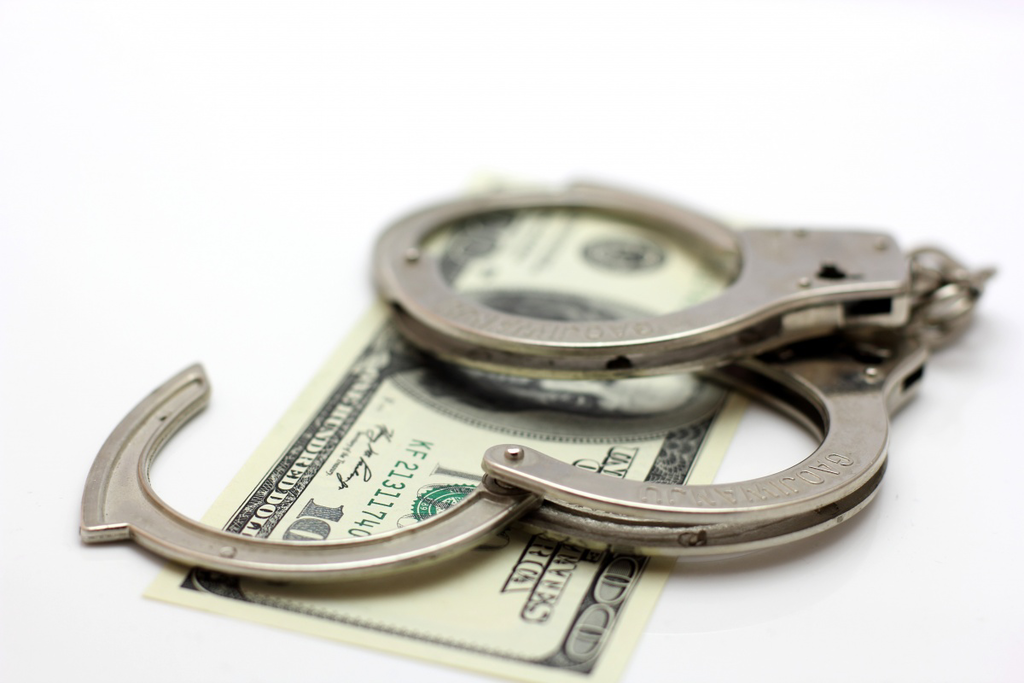Pennsylvanians pay inflated taxes because the state's public corruption rate is among the highest in the nation, says a new study based on data from the Justice Department.
The report in Public Administration Review shows public corruption “implicitly causes taxpayers to pay more,” said John Mikesell, an economics professor at Indiana University and co-author of the study.
Corruption costs taxpayers about $1,308 per person more per year in states with the most corruption, compared to states with average corruption levels, the study says.
Justice Department data place Pennsylvania historically among the 10 most corrupt states. Statistics from 1976 through 2008 rank the state with Mississippi, Louisiana, Alabama, Florida, Tennessee, Kentucky, Illinois, South Dakota and Alaska.
The Justice Department defines public corruption as “crimes involving abuses of the public trust by government officials,” including crimes ranging from bribery, extortion and vote-buying to obstruction of justice, money laundering and fraud.” The data included 25,000 government officials convicted of crimes.
More recent federal figures, from 2001-2010, show Pennsylvania in the top 10 based on every 10,000 government employees, but ranked below that tier on a per-capita basis.
The research by Mikesell and Cheol Liu of City University of Hong Kong goes a step further, saying public corruption “distorts” the direction of state spending. “Compared to less corrupt states, more corrupt states are likely to spend more on corrections, construction and police,” on average, than on “education, welfare and health,” Liu said.
Higher spending in areas such as construction, road building and prisons provides greater chances for corrupt officials to use projects for personal gain, the study suggests.
“I'd say, based on my experience, it is true,” said former U.S. Attorney James West, who was the chief prosecutor in Central Pennsylvania and handled several high-profile corruption cases.
Yet former Republican Gov. Tom Ridge said Pennsylvania shouldn't be categorized as a corrupt state.
“There have been investigations that led to the trials and convictions of some public servants; you can't deny that history,” Ridge said on Tuesday during a Pittsburgh visit.
But Ridge, whose Ridge Policy Group lobbies in Washington and Harrisburg, said he would yell “from the highest rooftop, the highest building in Pennsylvania … we absolutely reject that.”
The Justice Department figures don't count at least 26 public corruption convictions in Pennsylvania courts since 2010, mostly for using public resources for campaigns.
Those cases include the guilty plea of ex-House Speaker John Perzel, R-Philadelphia, and jury convictions of former Speaker Bill DeWeese, D-Waynesburg, and Supreme Court Justice Joan Orie Melvin, R-Marshall. Perzel oversaw the theft of $10 million in computer data and equipment for campaigns.
Separately, ex-House Democratic Whip Mike Veon, formerly of Beaver Falls, approved the use of $1.4 million in tax money as incentive for Democratic staffers to work on campaigns, a Dauphin County jury decided.
“There's a direct connection” between increased government costs and corruption, said West. In the 1970s, that sometimes amounted to 10 percent tacked onto the cost of a public contract and funneled to political operations — costs ultimately borne by contractors and citizens, West said.
“The commonwealth's political culture has shown a tolerance for politicians who use their offices for personal and political gain,” said J. Wesley Leckrone, a political science professor at Widener University. “The fact that corruption is correlated with higher spending on capital projects, construction and transportation is not surprising since the distribution of contracts in these areas could be advantageous in a pay-to-play culture.”
Attorney General Kathleen Kane last year spoke of “untold millions” in public costs as a result of a Pennsylvania Turnpike Commission corruption scandal. A grand jury alleged bribery and bid-rigging. Former Turnpike officials maintain their innocence.
Some corruption cases are etched in state history.
A state contract awarded in the 1980s to Computer Technology Associates, an obscure California company whose owner offered bribes to Pennsylvania pols, was much higher than one offered by a “Big Eight” accounting firm, said West, who prosecuted people tied to the case.
The scandal led to the conviction of former state Treasurer R. Budd Dwyer, who killed himself with a handgun at a news conference on Jan. 22, 1987. His public suicide was aired unedited by some TV stations.
Staff writer Tom Fontaine contributed to this report. Brad Bumsted is Trib Total Media's state Capitol reporter.
———————
Copyright 2014 – The Pittsburgh Tribune-Review
Thanks for reading CPA Practice Advisor!
Subscribe Already registered? Log In
Need more information? Read the FAQs
Tags: Accounting, Taxes




